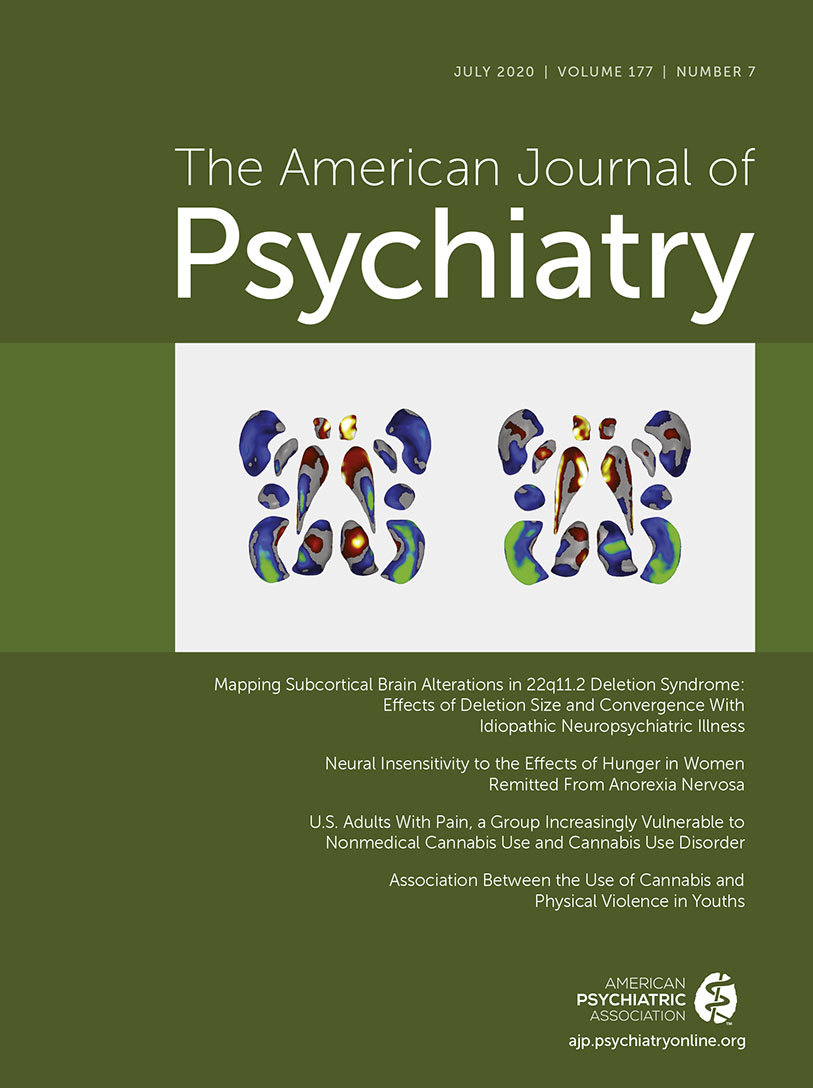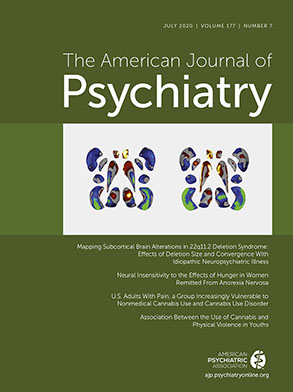T
o the E
ditor: The undersigned, representing the International Society of Applied Neuroimaging (ISAN), agree and disagree with Dr. Etkin’s summation of the field of neuroimaging (
1) that was published in the July 2019 issue of the
Journal. First, we strongly agree that committee-generated diagnostic formulations of psychiatry correlate poorly with the neurobiological underpinnings revealed by functional neuroimaging. Hence, it is not surprising that neuroimaging does not yield a fingerprint for many psychiatric diagnoses (
2). However, Dr. Etkin sets a false premise by exclusively focusing on functional MRI (fMRI), which is prone to variability in protocol and poor signal-to-noise ratio. The resulting extensive postprocessing manipulation necessary in fMRI is fraught with errors (
2). Eklund and colleagues estimated that roughly 70% of fMRI studies yielded false positives (
3).
As a result, we cannot agree with Etkin’s reckoning of functional neuroimaging. By ignoring positron emission tomography (PET) and single-photon emission computed tomography (SPECT), he—like the members of the APA neuroimaging workgroup (
4)—robbed themselves, psychiatrists, and the general public of effective and promising neuroimaging opportunities. Etkin’s argument that neuroimaging has failed to yield clinically applicable biomarkers actually is true only for fMRI. In contrast, PET and SPECT studies of repeated measures, case-control comparison, and large (N>1,000) samples provide replicated and clinically meaningful findings (
2). For example, in differentiating individuals with Alzheimer’s dementia from control subjects, [
18F]fluorodeoxyglucose (FDG) PET has a sensitivity of 0.84 and a specificity of 0.74, while perfusion SPECT using multidetector cameras has a sensitivity of 0.93 and a specificity of 0.84 (
2,
5). Moreover, both PET and SPECT can differentiate among other forms of dementia with reasonable accuracy (
2,
5). Another example is attention deficit hyperactivity disorder (ADHD). Subjects with ADHD can be readily distinguished from control subjects by perfusion SPECT (
2,
6). Indeed, SPECT can differentiate between patients whose ADHD symptoms are likely to respond to stimulant medication relative to those whose symptoms are not likely to respond (
2,
6), a replicated finding. Traumatic brain injury (TBI) and posttraumatic stress disorder (PTSD) are challenging to differentiate clinically. However, TBI and PTSD can be distinguished using SPECT with a sensitivity of 0.92 and a specificity of 0.85, according to a study of 196 veterans (
7). These findings were replicated in a study with an N>21,000 (
8).
In addition, SPECT is widely available, relatively inexpensive, and currently used with clinically beneficial results. Etkin’s point of a disconnect between neuroimaging and “real-world clinical care” is well taken (
1), yet the ISAN and other groups are actively using neuroimaging to guide clinical treatment. The person with ADHD with normal frontal lobe function, but with decreased temporal lobe function, is treated differently than the person with ADHD and decreased frontal lobe function (
9,
10). The ISAN is also striving toward a unified data processing algorithm that will be openly available to all clinicians and that will foster a common language for evaluating scan results (
9).

